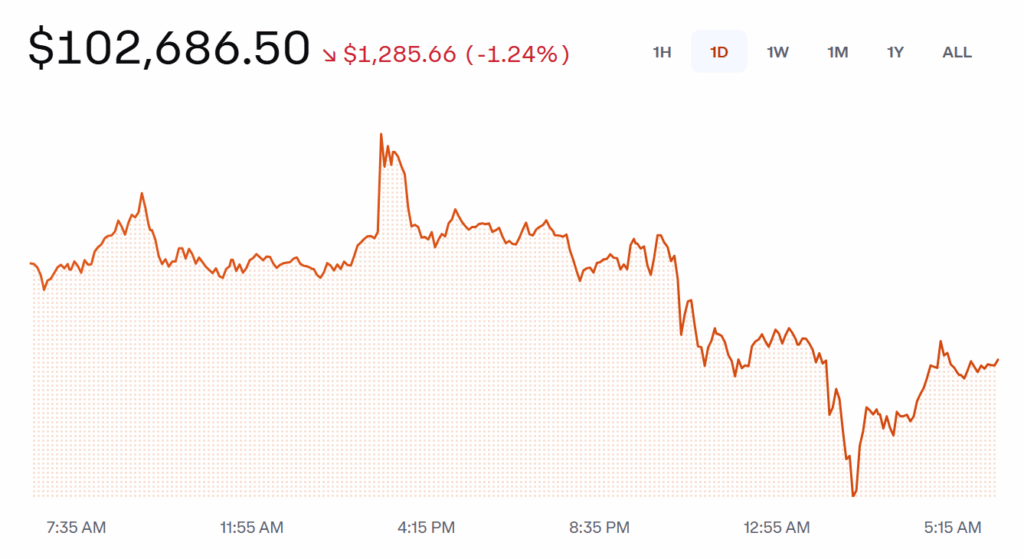- Coinbase opted against a Bitcoin-heavy strategy like Saylor’s, fearing it could jeopardize cash reserves and customer trust.
- Coinbase acquires Deribit for $2.9 billion, becoming a major player in the crypto derivatives market.
- Over 100 public firms now hold Bitcoin, but Coinbase CFO Alesia Haas says the exchange won’t compete with customers over asset performance.
Coinbase CEO Brian Armstrong revealed that the company considered going all-in on Bitcoin multiple times but ultimately decided against it. Armstrong said pouring 80% of Coinbase’s balance sheet into BTC could’ve jeopardized the firm’s cash reserves and risked alienating customers. Instead, Coinbase opted for a more conservative approach, holding $988 million in Bitcoin as part of its $1.3 billion crypto asset stash – a far cry from Saylor’s aggressive strategy.
Deribit Acquisition – Coinbase Bets Big on Derivatives
On May 8, Coinbase announced a massive $2.9 billion acquisition of crypto derivatives platform Deribit – the largest deal in the industry to date. The move propels Coinbase into the big leagues of crypto derivatives trading, an area it had previously dabbled in only through its Bermuda-based platform. Deribit handled over $1 trillion in trading volume last year, with $30 billion in open interest, positioning Coinbase as a dominant player in the derivatives market.
The Saylor Effect – Companies Betting Big on Bitcoin

While Coinbase avoided going full Saylor, other firms are diving in headfirst. Over 100 public companies now hold Bitcoin on their balance sheets, along with 40 ETF issuers, 26 private firms, and even 12 nations. Saylor’s playbook – using stock and debt sales to fund Bitcoin buys – has caught on, but Coinbase CFO Alesia Haas says the firm doesn’t want to be seen as directly competing with its customers over which assets will outperform.














